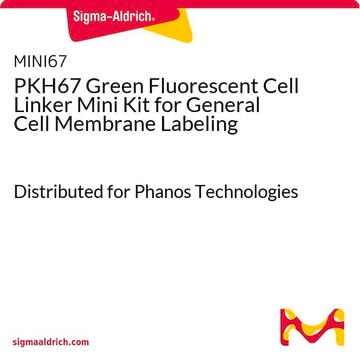H8773
Halocarbon oil 27
Synonym(s):
1,1,2-trifluoro-2-chloroethene, Chlorotrifluoroethylene homopolymer
Sign Into View Organizational & Contract Pricing
All Photos(2)
About This Item
CAS Number:
MDL number:
UNSPSC Code:
12162002
PubChem Substance ID:
NACRES:
NA.75
Recommended Products
General description
Halocarbon oil 27 is a polymer of chlorotrifluoroethylene (CTFE). It is used to lubricate pumps in hyperbaric chambers.
Application
Halocarbon oil 27 has been used in the microinjection of zebrafish embryos. It has also been used for injury (axotomy) assays.
Storage Class Code
10 - Combustible liquids
WGK
WGK 3
Flash Point(F)
Not applicable
Flash Point(C)
Not applicable
Certificates of Analysis (COA)
Search for Certificates of Analysis (COA) by entering the products Lot/Batch Number. Lot and Batch Numbers can be found on a product’s label following the words ‘Lot’ or ‘Batch’.
Already Own This Product?
Find documentation for the products that you have recently purchased in the Document Library.
Aparna Ratheesh et al.
Developmental cell, 45(3), 331-346 (2018-05-09)
Migrating cells penetrate tissue barriers during development, inflammatory responses, and tumor metastasis. We study if migration in vivo in such three-dimensionally confined environments requires changes in the mechanical properties of the surrounding cells using embryonic Drosophila melanogaster hemocytes, also called macrophages
Sudarshan Chari et al.
Development (Cambridge, England), 146(19) (2019-09-13)
The early embryos of many animals, including flies, fish and frogs, have unusually rapid cell cycles and delayed onset of transcription. These divisions are dependent on maternally supplied RNAs and proteins including histones. Previous work suggests that the pool size
Analyses in zebrafish embryos reveal that nanotoxicity profiles are dependent on surface-functionalization controlled penetrance of biological membranes
Paatero I, et al.
Scientific reports, 7(1), 8423-8423 (2017)
Axon death pathways converge on axundead to promote functional and structural axon disassembly
Neukomm LJ, et al.
Neuron, 95(1), 78-91 (2017)
A Vinegar et al.
Fundamental and applied toxicology : official journal of the Society of Toxicology, 18(4), 504-514 (1992-05-01)
The hydraulic fluid oil polychlorotrifluoroethylene (PCTFE) is hepato- and nephrotoxic in the rat. Male Fischer 344 rats were exposed to PCTFE either for a single 6-hr exposure (0.5 or 0.25 mg/liter) or daily 5 days/week, 6 hr/day, for 13 weeks
Our team of scientists has experience in all areas of research including Life Science, Material Science, Chemical Synthesis, Chromatography, Analytical and many others.
Contact Technical Service








